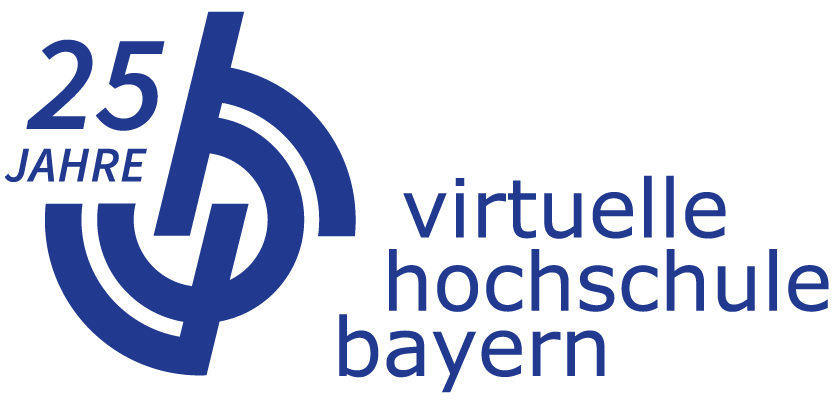Introduction to Academic Research - For Humanities Students with a Focus on Philosophy and Ethics
Introduction to Academic Research - For Humanities Students with a Focus on Philosophy and Ethics
| Angeboten von: | Prof. Dr. Dr. Johannes Wallacher | ||
| Anbietende Hochschule: | HfPh München | ||
| Kurssprache: | Englisch | ||
| Wissensgebiet: | Geistes- und Kulturwissenschaften | Kostenfrei | |
| Durchschnittliche Bearbeitungszeit: | 15 Stunden | Kostenfrei | Einschreiben |
| Bildnachweis: lil_foot_ (on Pixabay) | |||
Was können Sie in diesem Kurs lernen?
- Theoretical foundations of how research is conducted in the humanities, with a focus on philosophical and ethical inquiry, including methods like conceptual analysis, argument reconstruction, and normative reasoning.
- Development of practical skills for writing academic texts: selecting and narrowing down topics, structuring arguments, conducting literature research using academic databases, organizing sources, and planning the writing process effectively.
- Training in presenting academic content clearly and convincingly, both orally and visually, with attention to audience engagement and professional standards.
- Strategies for understanding complex scholarly texts, including identifying central arguments, distinguishing between main and supporting points, and critically engaging with the content.
- Introduction to proper referencing techniques, avoiding plagiarism, and using citation styles (e.g. APA, MLA, Chicago) accurately to acknowledge sources in academic work.
Gliederung
The course consists of four chapters dealing with various aspects of academic work in the humanities or philosophy. Its structure follows a logical learning progression: it begins with foundational concepts about academic knowledge and methodology in the humanities, especially philosophy, then moves on to practical skills—first teaching you how to find relevant literature, then how to read it effectively, and finally how to use it in writing and presentations. This step-by-step design ensures that you build the necessary theoretical understanding and practical abilities in a coherent, cumulative way.
1. Chapter: Science, the Humanities & Philosophy
This chapter explores what makes knowledge scientific, highlighting how both the sciences and humanities use recognized methods to produce reliable insights. It also introduces key philosophical approaches like hermeneutics, phenomenology, and dialectics.
2. Chapter: Literature research
This chapter introduces essential techniques for literature research in the humanities, focusing on how to find, evaluate, manage, and correctly cite academic texts. It also presents practical tools like the snowball method, databases, and citation software to support your academic work.
3. Chapter: Reading texts
This chapter helps you develop essential reading skills for understanding and analyzing complex philosophical texts. It introduces strategies like close reading, structuring content, and identifying arguments—key tools for academic work in the humanities.
4. Chapter: Writing & Presentations
This chapter guides you through the key techniques of academic writing and oral presentations, both essential for successfully studying philosophy and the humanities. It shows you how to prepare, structure, and deliver presentations, as well as how to plan, write, and revise academic texts using effective strategies and time management tools.
Angeboten von
Prof. Dr. Dr. Johannes Wallacher, Professor of Social Sciences and Business Ethics and President of the Munich School of Philosophy.
Weitere Mitwirkende

Content and course creation
Maximilian Wopinski is a research associate for higher educational didactics at the Munich School of Philosophy. He studied educational science and philosophy in Augsburg and Munich and has been working for the QUADIS project (Improving the quality of digitally enhanced teaching at Bavarian universities) since 2021.
Content and course creation
Dr. Rebecca Gutwald was a research associate and lecturer at the Munich School of Philosophy. From 2018 until 2022 she has been working at the Munich School of Philosophy as the executive director of the doctoral program "Ethics, Culture and Education for the 21st Century."
Preparation of media content
Regina Maria Bäck is a doctoral candidate at the Catholic University of Eichstätt and the Katholische Stiftungshochschule München (KSH) University of Applied Sciences. She is currently a scholarship holder in the dissertation project "Ethics, Culture and Education for the 21st Century."
Zielgruppe
Prospective students and first-year students of philosophy as a major or minor subject, students of degree programmes in which philosophy is taught in individual modules (e.g. in social or nursing science degree programmes at universities of applied science or at academies and further education institutes), international students, career changers, students of minor subjects and teacher training students.
Previous knowledge is not required.
Bescheinigung der Teilnahme
After successful completion of at least 75 percent of the marked tasks in the course, participants will receive a certificate of participation in PDF format.
